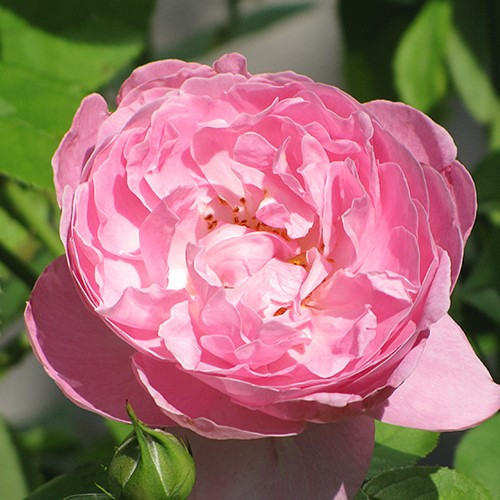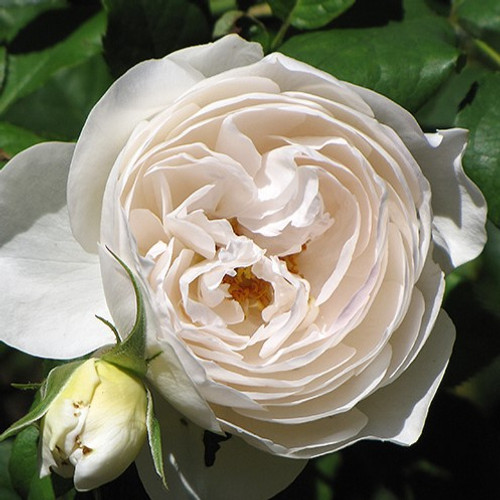| Rosa 'Charles Darwin' |
USDA Zone: 5-11 |
Charles Darwin Rose is clothed in stunning fragrant gold flowers with yellow overtones at the ends of the branches from late spring to early fall, which emerge from distinctive red flower buds. The flowers are excellent for cutting. It has forest green foliage throughout the season.
The blooms of this variety are among the largest of the English roses; glorious golden blooms with lemon tints; intense lemony-tea fragrance; needs full sun and well-drained soil; good disease resistance.
Charles Darwin Rose is recommended for the following landscape applications;
- Mass Planting
- Hedges/Screening
- General Garden Use
English Rose - bred by David Austin
Rebloomer
Fragrance: Strong
Bloom Time: Spring, Summer, Fall
Attracts Butterflies
Common Name: David Austin, Old Fashion, English Rose
|
Key Feature
|
Light Needs | Landscape Uses |
 |
 |
|
|
|
|
| More About Charles Darwin David Austin Rose |
| Height: 3-4 ft |
Spread: 4 ft |
Flower Colour: Yellow Shades |
|
Select a site with at least 6 hours of direct sun each day. Generally roses will not flourish where their roots are in competition with the roots of other plants, especially trees and hedges. If you have the space, English roses look superb planted in groups of three or more of one variety. They will then grow together to form one dense shrub, which will provide a more continuous display and make a more definite statement in the border. Depending on the varieties and your climate, more groupings can be planted 24-30" apart within the group and 3-4 ft between plants of neighbouring varieties. Roses will grow in a wide range of soils, but they do appreciate good soil preparation. The addition of well rotted manure or compost before planting will help to ensure strong growth. Feeding, generous mulching and occasional deep watering will help encourage strong growth and more flowers. The removal of spent flowers. It encourages repeat-flowering and makes for a tidier plant. Either remove just the dead flower or cut the stems down to the first full leaf. Note that when grown in a container, it may not perform exactly as indicated on the tag - this is to be expected. Also note that when growing plants in outdoor containers and baskets, they may require more frequent waterings than they would in the yard or garden. Be aware that in our climate, most plants cannot be expected to survive the winter if left in containers outdoors, and this plant is no exception. NOTE: Some flowers and plants may be harmful or poisonous to people or pets if touched or ingested. If you require more information before placing an order, please let us know in advance. |









